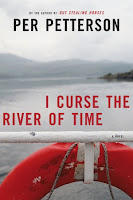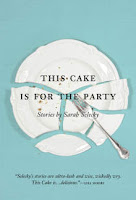“And I Start to Complain When There’s No Rain”
Today we feel fantastic. We walked a giant loop today — all the way to the butcher’s in another neighbourhood and back again. Just about two hours, the RRBB and I, and he only cried once along the way. On top of that, he’s still sleeping in his bassinet of all places, and not on me, so I am taking advantage and killing items one by one on my to do list like they are a shooting game at the Ex in August. Bam! Checkmark. Bam! Checkmark. Bam!
I saw the kidney doctor this week and my blood work keeps improving. My creatinine is the lowest it has been in months, and there’s something called albumin that was well out of whack, which has also returned to normal. That’s the good news. Of course, because it’s me, there’s also bad news. Once I stop breastfeeding, and both the SFDD and the kidney doctor recommend (or are encouraging me to stop) weaning him at six months, there’s other medication that I’m going to need to start taking. I’d really like to do the entire year but we have to balance the continued health of my kidneys, which are still being damaged, along with still having some high blood pressure, from the preeclampsia.
Apparently, I could have high blood pressure for the rest of my life.
I am not happy about this. In the entire history of my disease, and that’s twenty years of fighting it now, I have never had high blood pressure. So, it seems I have to do all kinds of things to try and regulate it outside of medication: eating better (yeah, right, while on prednisone; give me strength), getting exercise (walking, walking, walking and starting back at the gym in March), and taking supplements (garlic, etc). Once some of the baby/prednisone weight comes off, hopefully it’ll improve too, but the end result is that I’ll have to take something called an “ace inhibitor” for the rest of my life. It’s protects your kidneys from the damage done by too much protein passing or something. They are blood pressure meds. I am disappointed that the preeclampsia has done so much damage and is taking so long to clear up — that it might never clear up is even more upsetting, but what would be worse is losing my kidney function entirely, and ending up either on dialysis or needing a transplant. We don’t need that kind of tragedy, we just don’t.
It’s been a long, long road back. Now that I have some perspective, and am that far away from everything that happened (next Thursday it’s 20 weeks since I was admitted to the hospital), and the baby is a little bit older, the whole world seems, well, less oppressive. Also, I was thinking about how hard winter feels generally — when you have to get up everyday and go out in it, when you don’t have the freedom to curl up on the couch and snuggle with a baby if it’s just too daunting — and usually by this time, I am grumpy, aggressive, angry and really, really tired. Also, I generally go through my days with a giant ball of panic that sits right in the middle of my chest. Panic about work, about getting stuff done, about work politics, about my career (or lack thereof), and when I got my new job, all of that sort of disappeared — sure, it was stressful, but I loved every minute of it.
So, I’m feeling conflicted these days. Now that I am feeling so much healthier, what kind of pressure can I put on myself to be better, to do better, to make better use of my days. A friend came over the other night and I was explaining to her how I feel, some days, like a very typical newish mom. I fill my days with “busy work” because I’m not the sort to sit still, but is this “busy work” worth it — should I still be trying to rest instead of speed balling through to recovery. It’s hard. I’m hard on myself. I set high, lofty goals. I demand a lot, and it’s this pressure that probably caused the disease (among other reasons) in the first place. It seems that I don’t know how to be unless I’ve got the giant, Pilate’s ball-sized stress in my chest.
It’s an unhealthy way to live. I know this. And I don’t put this kind of pressure on anyone else in my life; in fact, just the opposite. I want my friends and family to happy, calm and content. I don’t know why I can’t put the same kind of goals into perspective when it comes to my own life. There’s a part of me that takes everything so personally — that holds on to meaning that’s an impression and not truly a reality. Again, it’s not a healthy way to live. It’s not something I want to impart to my RRBB either, and certainly something that my RRHB finds hard to live with.
But back to the “typical mom” scenario. My RRHB has been doing a play all week with his new musical endeavor, Detroit Time Machine, and so I’ve been with the baby by myself a lot. For the first time in months, this is actually something I can handle. I’m not too sick to do it by myself. In fact, it’s been actually kind of fun. So, we were looking for something to fill our days and I decided we’d head to the mall (“mecca” with a small “m”). I adore the mall. You can take the girl out of the suburbs but sometimes, you can not take the suburbs out of the girl: case in point, Sherway Gardens. It’s just so, lovely.
So, the baby slept and slept and slept, and I refuse to wake him so it was late when we left the house, after 2 PM. I got myself all worked up that there would be traffic and he’d be miserable and maybe we shouldn’t go at all, etc. But he was perfect and only fussed a bit on the way home, slept while I walked around, and all I saw everywhere I looked was other moms — babes unbundled with semi-bored expressions on their faces. Some were even quite haggard (and if you’ve seen my hair, it defines “haggard”). And as I sat down, eating an ice cream cone and just people watching, the giant ball of stress dissipated. I don’t know what happened. I just took some deep breaths and enjoyed the moment.
I know this seems silly — but it’s all a part of how I think I’m changing because of the baby. Yes, I did talk my girlfriend’s ear off when she came over the other night because singing and talking all day to the baby isn’t necessarily conversation. But, I am also enjoying the silence a lot more than I ever have before. I’m enjoying everyday life when it’s not crammed into an already overstuffed weekend. I’m enjoying the new sounds the baby’s making. I’m enjoying the winter. I’m enjoying not working. Don’t get me wrong. I love my job and can’t wait to go back, but I’ve never not worked, and even when I haven’t slept, when the baby’s cranky, when I’m all alone and feeling the pressure of taking care of another life, I’m still more calm than I ever was a year ago. And maybe that’s what’s contributing to making me better too. That and a little retail therapy. It seems I just can’t stop buying soap.







